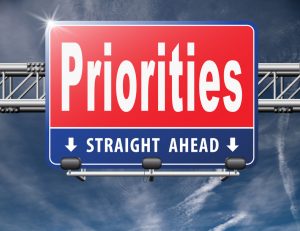
Why active listening is a VERY important skill for sales.
When I saw the results of a study Gong.io did last year to see if they could determine “what actually works on a sales call”, I wasn’t shocked that the data showed active listening has a huge impact on closing rates.
I get waaaay too many calls these days where the person on the other end just starts talking at me, making major assumptions about what I need without ever slowing down to ask. And just about every time, I’m so turned off by this self-centric approach that I’m not even interested in future conversations.
I know I’m not the only one either.
It’s an interesting article all around and I highly recommend you go check it out if you haven’t already. But the key takeaway for me was that the prospect should actually do most of the talking, not the salesperson (they found 43% rep, 57% prospect to be the best ratio out of 25,000 sales calls).
So if you know your market and your customers’ needs inside out but still aren’t making any headway, here are 3 ways active listening will help you (and a few resources to help you get better at it).
Active listening makes you stand out.
The best brands also know how important uniqueness is. It’s why companies like Apple have seen disproportionate market share as a result of well-executed marketing.
But, listening skills among salespeople are an endangered animal these days (Gong found the prospect only spent 25% of the time talking on the average sales call).
As automation becomes more and more a part of daily sales operations, it seems that there is increasing pressure to close deals faster, and reps are taking less time to build relationships with their prospects (in fact, the entire sales industry seems to be trending this way).
The negative impacts of this are clear too. Without solid relationships, opportunities are missed and long-term customer value suffers.
But because active listening is one of the most important components of meaningful relationships, this means if you take the time to do it even 10% better than the next guy, you’ll stand out like you’re doing it 30% better since no one else is (the Gong.io study found increasing prospect talk-time by 10% drastically improved win-rate).
Bottom line: if you can brand yourself as a listener even a little bit, you’ll be remembered for it.
Active listening makes you likable.
Let’s face it, this one is pretty straight forward. Nobody likes to spend a lot of time with self-interested people personally or professionally.
But scientifically speaking, likability is a huge persuasion activator too. Here’s what Robert Cialdini (a.k.a. the “Godfather of Influence”) found through his research about likability and persuasion:
- People like those that are similar to them
- People like those that pay them compliments
- People like those that cooperate with them towards common goals
Notice anything interesting about that list? There’s not one of those things that listening doesn’t affect!
- Everyone likes to be listened to (it’s human nature) and listening to them shows them you’re human just like them.
- Everyone likes to feel like they’re important, and active listening pays a compliment to their significance
- Everyone likes someone who genuinely wants to help, and listening shows them your interest in collaborating to achieve a mutual goal
That old sales adage really is true: people buy from people they know and like. And, this isn’t anything new either…every single one of these things ties back to the golden rule.
Long story short, treat people the way you want to be treated and you’ll do just fine.
Active listening helps you not be pushy.
When was the last time YOU were excited to interact with someone who only pushes their own interests all the time?
If you’re anything like me, I’m guessing never.
The truth is, no one likes to be sold to. They like to buy. And that’s because when they’re buying, they’re in control.
The desire for individual liberty is part of human nature. So like Robert Cialdini found in his research about likeability and persuasion, acknowledging the person’s right to say “no” as an individual is important for the same reasons.
Giving your prospect the ability to choose (or at least the perception of it) acknowledges their basic human instincts and puts them in the driver seat. And in turn, a true <two-way conversation happens> which is a more productive environment for a sale to occur.
You can do this easily on any sales call by simply taking the time to ask insightful questions before you pitch.
How to become a better active listener.
While there’s a ton of information on the web (seriously, just Google “active listening in sales”), I think Hubspot really has a couple of incredible resources on the topic:
Active Listening In Sales: The Ultimate Guide
What Is Active Listening? Here Are 6 Phrases To Demonstrate It
6 Strategies to Get Better at Active Listening Today
How to Shut the Hell Up and Really Listen
And one other thing: it can be easy to think you already know what your prospects need (and indeed, often you might). But, I want to challenge you to always get it directly from them each and every time.
That’s because active listening has a reassuring effect on your customer, in addition to making 100% sure you always know how to reach them best.
When they see you listening, they’re much more confident that you genuinely care about helping them and that you understand their needs adequately. Which is often just as important as actually knowing what they need in the first place.
What active listening really does…
Just like smart retailers remove merchandise near the door to create a decompression zone, the best salespeople use active listening to create a low-pressure environment that makes the sales call a more collaborative and human experience.
And, establishing this environment makes you likable and memorable at the same time, which are both things that drastically increase your chances of coming away with a win.
If you know your product/service and your market inside and out, but still aren’t making any headway with buyers, start working on your active listening skills now. It’s likely the secret sauce you’re missing.
